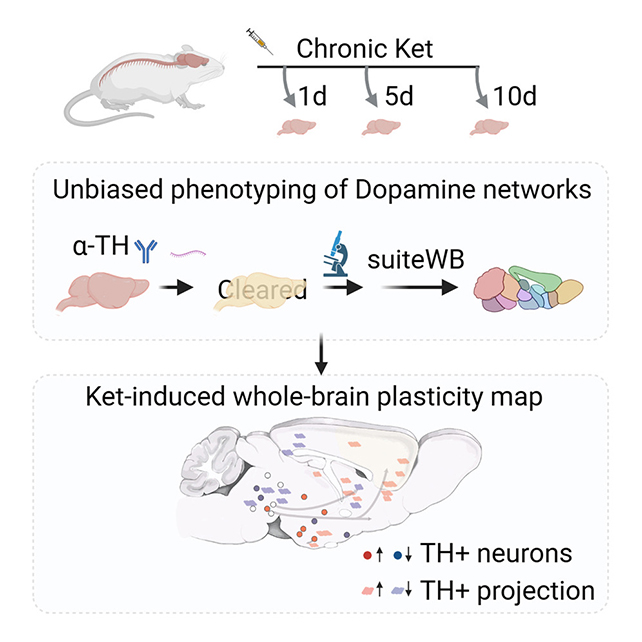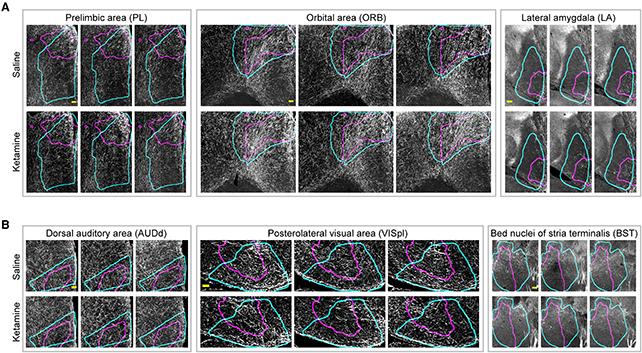Ketamine is well known for being a dangerous recreational drug, but when properly managed it can help treat a variety of health problems. However, a new study raises the question of how carefully ketamine treatments should be targeted.
Researchers from Columbia University ran a series of tests on mice, finding that repeated use of ketamine over a 10-day period causes fundamental changes in the way the brain manages dopamine, the neurotransmitter that signals pleasure and satisfaction.
In some parts of the brain, the team saw a reduction in dopamine neurons in the brains of the mice; in other regions, there was an increase in these neurons. If we're to continue to use ketamine as a treatment, these effects need to be better understood.

"Instead of bathing the entire brain in ketamine, as most therapies now do, our whole-brain mapping data indicates that a safer approach would be to target specific parts of the brain with it, so as to minimize unintended effects on other dopamine regions of the brain," says neurobiologist Raju Tomer, from Columbia University.
Results at this level of detail and over this period of time haven't been gathered before, so it's still early days in terms of saying what ketamine is or isn't doing to our brains – and of course these are experiments in mice, not humans.
However, the researchers noticed an increase in dopamine neurons found in the hypothalamus region, where the body's basic functions are managed. Perhaps that's why ketamine seems to help with eating disorders, the researchers suggest.

On the flip side, there was a decrease in the dopamine neurons in two parts of the midbrain associated with behavior states.
Discovering that ketamine exposure leads to specific region changes rather than a uniform effect could impact depression, schizophrenia, and psychosis treatments, the authors say. Long-term ketamine use has been linked to symptoms seen in schizophrenia.
"The restructuring of the brain's dopamine system that we see after repeated ketamine use may be linked to cognitive behavioral changes over time," says neurobiologist Malika Datta, from Columbia University.
While the researchers continue to pick over the findings and their potential consequences for how we use ketamine, it's a definite win for the brain mapping technique used here, which actually combined various approaches to imaging and neuron labeling.
It's the first time anyone has been able to see the effects of ketamine across the entire brain at an individual cell level – although it should be noted that only dopamine neurons were analyzed here, so we only have one part of the picture of what's going on.(Priscila Zambotto/Getty Images)
"The study is charting a new technological frontier in how to conduct high-resolution studies of the entire brain," says neurobiologist Yannan Chen, from Columbia University.
The research has been published in Cell Reports.
